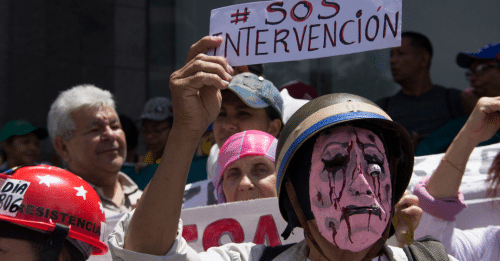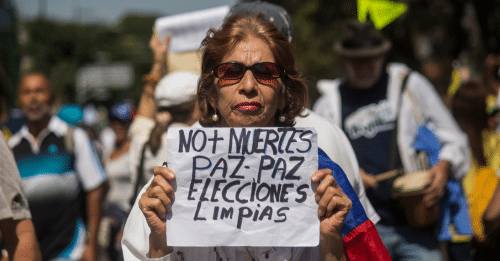Myriam Gurba On Pretendians, and Racial and Ethnic Fakes
What racial and ethnic fakes do when they impersonate racially and ethnically minoritized people is engage in a pairing: They plunge the concept of property deep into the heart of race and race deep into the heart of property.

I encountered my first pretendian on a public school playground. She was a blonde and blue-eyed ten-year-old who spent the greater part of recess dangling from the jungle gym while bragging that she was Cherokee. Her news took me by surprise, my family had known her family for years, and the more she talked, the more eager I grew to this new information about her with my parents.
That evening, as we sat at our dinner table, I repeated to Mom and Dad what the girl had announced. I hadn’t anticipated Dad bursting into laughter.
“What’s so funny?” I asked.
“Your classmate,” said Dad, “is making things up.”
I fumed with anger. I had trusted this Campbell’s soup looking kid! Why would she lie about being Native American?
“Why would she lie about being Cherokee?” I demanded.
After taking a sip of wine, Dad explained that certain Americans like inventing stories, especially tales that turn them into native people. Dad’s thesis illuminated nothing. The girl’s behavior still made no sense.
“But why?” I demanded.
“They think it’s exotic,” Dad over-asserted the word exotic to heighten its vulgarity, “and, it eases their conscience. It makes them feel better.”
“Better about what?”
“About taking things.”
“Ooooooh,” I uttered as the puzzle pieces slid together. By things, Dad meant the lands called the United States of America. Still, I didn’t want to believe that my friend, or her family, were liars, and so, I did the work of whiteness: I continued to defend her innocence.
“But she really could be part Cherokee!” I insisted.
Dad replied, “Yes. Or she might be a typical Anglo American who insists that she’s 1/16 Cherokee and descended from a princess whose name nobody seems to know.”
“HOW DID YOU KNOW THE PRINCESS PART?!” I yelled. “AND THE 1/16 PART?!!”
Dad sighed, exasperated. “Because it’s always the same damn story. Now eat your ejotes!”
Dad was on to something. The lies my classmate told me closely resemble the fabrications for which various racial and ethnic fakes have recently been held to account. Last year, Jeanine Cummins, a writer who had publicly identified as an unelaborated white lady, began announcing herself as both a “Latinx woman” and “boricua.” It was noted by many who followed her story that her attempt at claiming a spicy identity coincided with the publication of her highly anticipated novel, American Dirt. That book, a narco-thriller set in México, fetishizes immigration to the point of unintended satire. It’s a fun book to hate-read.
Cummins is perhaps the most prominent among this new crop of Dolezalitas. Others include BethAnn McLaughlin, a white woman and former assistant professor of neurology at Vanderbilt University. McLaughlin crafted a pretendian Twitter persona, @sciencing_bi. The persona remained unnamed, but over time, @sciencing_bi developed an elaborate identity, that of a Hopi anthropology professor working at Arizona State University. On July 31, McLaughlin killed her nameless invention, announcing on Twitter that @sciencing_bi had died of COVID-19. Shortly thereafter, an ASU spokesperson exposed McLaughlin’s hoax. The outing prompted McLaughlin to pander for pity. She blamed her bad behavior on an unnamed mental illness
Otra mentirosa es la Jessica Krug, a white woman and former associate professor of history at George Washington University. For years, Krug impersonated “North African Blackness,…US rooted Blackness, [and finally] Caribbean rooted Bronx Blackness” to enhance her academic career. Duke University Press unwittingly published her book, Fugitive Modernities, which Krug had the fucked up balls to dedicate to her “ancestors, unknown, unnamed, who bled life into a future they had no reason to believe could or should exist.” Krug’s hyper-stereotyped Black personae most recently manifested in the form of Jess La Bombera, a salsa-dancing alter ego who spoke in a weird, guanabe, pastiche accent shared by nobody else on the planet. In anticipation of being unmasked, Krug confessed to her charade while shirking accountability, framing her shitty behavior as a trauma response.
Jess La Bombalera (Jessica Krug) – NYC City Council Testimony 6/9/20
Kelly Kean Sharp, a white woman and former assistant professor of African American history at Furman University, is the latest ethnic fake to be exposed by doubters. Like Krug, Sharp also rooted her fictional identity in Latin-American ancestry, claiming to be a Chicana. An anonymous medium essay includes a picture of Sharp clumsily dining while wearing a huipil, a traditional Indigenous garment. The essay also features Sharp’s tweets about the commitment of her “abuela” to Goya foods. To me, this detail seemed to betray Sharp’s secret. Do you know many die-hard Chicanx Goya loyalists? I don’t. If there is a canned food brand that inspires cult-like behavior among Chicanx, it’s El Pato Salsa.
Reasons for the racial and ethnic fakery deployed by opportunists like Cummins, McLaughlin, Krug, and Sharp are varied. I’m interested in closely examining a reason inextricably tied to property: settler-colonialism. For guidance, I turn to the work of Cheryl Harris, author of the seminal article, “Whiteness as Property.” In a retrospective response to that article, Harris asserts that the “racial foundations of property remain persistently…obscure.” Harris also invokes political philosopher Jeremy Bentham to remind us that “expectations affirmed as property are not physical but metaphysical.” Harris then argues that “this subjectivity takes the concept of property deep into the heart of race and race deep into the heart of property.”
What racial and ethnic fakes do when they impersonate racially and ethnically minoritized people is engage in a pairing: They plunge the concept of property deep into the heart of race and race deep into the heart of property. The harms strewn in their wake leave us to consider three questions:
1) To whom do race and ethnicity belong?
2) Who belongs to race and ethnicity?
3) Who belongs to a race or ethnicity?
If we consider whiteness a tool through which one seizes, settles, and accumulates more properties, then we can also use it as an intellectual key. In the case of white women who impersonate those who racially or ethnically differ from themselves, we see the following: Non-white properties become targeted for settlement. According to this dynamic, the white settler relates to non-white identities, for example, that of a Hopi anthropologist or a Black Caribbean historian, as frontiers to be studied and then occupied. Non-white identities become terra nullius, “nobody’s land.” The settler-colonial visionary sees these identities as empty vessels fit for habitation.
In the twenty-first century, white settlers seek to colonize quotidian ways of being that hold exoticized appeal, or, as Edward Said put it, “They weren’t like us and for that reason [they] deserved to be ruled.” These recent crops of race and ethnic fakes share certain traits. Many have described them as sanctimonious and at some point in their impersonation or appropriation, they claimed to either be a superior iteration of whom they were impersonating or they claimed to know what was best for the group they auto-elected to represent. Both of these gestures enshrine white innocence while asserting white supremacy, and such actions are also expressions of capitalism. The white settler not only accumulates and hoards land and other material resources; the settler also accumulates and hoards the property we call experience. Krug, for example, didn’t limit herself to impersonating one type of Blackness. Instead, she worked to colonize a spectrum of the Black experience.
Consider who else she, and the others, could have colonized had they been afforded the time and the freedom. Las Dolezalitas are truly disgusting.




